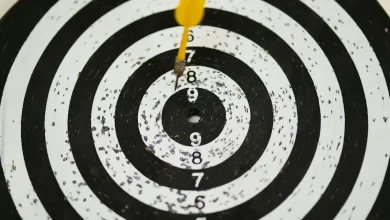Peer Support: Supercharge Your Goal Achievement

Have you ever set a goal and felt overwhelmed by the journey ahead? You’re not alone. Goal setting is a crucial step towards personal growth and success, but the path to achievement can often feel lonely and challenging. What if there was a way to make your journey more manageable, enjoyable, and successful? Enter the power of peer support.
Peer support in goal achievement is like having a personal cheerleading squad dedicated to your success. It’s a powerful tool that can significantly boost your chances of reaching your objectives. In this article, we’ll explore how leveraging peer support for success can transform your goal-setting experience and propel you towards your dreams.
Understanding Peer Support
What is Peer Support?
Peer support is a system where people with shared experiences or goals provide each other with encouragement, advice, and assistance. It’s like having a buddy system for your ambitions. When it comes to achieving your goals, peer support can be a game-changer.
Types of Peer Support
Peer support comes in various forms, each playing a unique role in your journey:
- Emotional support: Offering encouragement, empathy, and a listening ear
- Informational support: Sharing knowledge, resources, and experiences
- Instrumental support: Providing practical help or tangible assistance
Benefits of Peer Support in Goal Achievement
Incorporating peer support into your goal-setting process can offer numerous advantages:
- Increased accountability: Knowing someone is checking on your progress can keep you on track
- Enhanced motivation: Regular encouragement can boost your drive to succeed
- Diverse perspectives: Peers can offer fresh insights and alternative solutions
- Reduced stress: Sharing your challenges can help alleviate anxiety and pressure
- Accelerated learning: Learning from others’ experiences can help you avoid common pitfalls
- Celebration of milestones: Having someone to share your successes with makes the journey more enjoyable

The Psychology Behind Peer Support
Understanding the psychological principles that make peer support so effective can help you leverage it more successfully in your goal-setting journey.
Social Cognitive Theory and Observational Learning
Social cognitive theory, developed by psychologist Albert Bandura, suggests that we learn by observing others. When we see our peers succeed, it boosts our belief in our own abilities. This concept, known as vicarious learning, is a powerful motivator in goal achievement.
For example, if you’re trying to adopt a healthier lifestyle and see a peer successfully incorporating regular exercise into their routine, it can increase your confidence in your ability to do the same. This observational learning can provide practical strategies and inspiration for overcoming obstacles.
Accountability and Motivation
One of the most significant benefits of peer support in goal achievement is the built-in accountability it provides. When you share your goals with a peer, you’re more likely to follow through on your commitments. This external accountability can be a powerful motivator, especially on days when your internal drive might be wavering.
Research has shown that people who share their goals with a friend and send weekly updates are 33% more successful in achieving their goals than those who keep their objectives to themselves. This increased accountability can be the difference between giving up and pushing through challenges.
Positive Reinforcement and Encouragement
Positive feedback from peers can significantly boost your motivation and self-esteem. When you receive encouragement and recognition for your efforts, your brain releases dopamine, a neurotransmitter associated with pleasure and reward. This positive reinforcement creates a cycle of motivation, making you more likely to continue working towards your goals.

Finding the Right Peer Support System
Leveraging peer support for success starts with identifying the right individuals or groups to support your journey.
Identifying Potential Peer Supporters
Look for peer supporters in various areas of your life:
- Friends or family members with similar goals
- Colleagues or classmates working towards related objectives
- Members of clubs or organizations aligned with your interests
- Online communities focused on your area of goal-setting
Qualities to Look for in a Peer Supporter
When selecting peer supporters, consider these important qualities:
- Reliability: They should be dependable and consistent in their support
- Positivity: Look for individuals who maintain an optimistic outlook
- Honesty: Choose peers who can provide constructive feedback when needed
- Empathy: Select supporters who can understand and relate to your challenges
- Commitment: Ensure they’re dedicated to their own goals and growth
- Good communication skills: Effective supporters should be able to listen and express themselves clearly
Different Peer Support Structures
Peer support can take various forms, each with its own advantages:
- One-on-one partnerships: These provide focused, personalized support and deep accountability
- Group settings: Offer diverse perspectives and a wider support network
- Online communities: Provide flexibility and access to a global network of like-minded individuals
When choosing a peer support structure, consider your personal preferences, goals, and schedule. You might even benefit from a combination of different structures for comprehensive support.

Establishing Effective Peer Support Relationships
Once you’ve identified potential peer supporters, it’s crucial to build strong, productive relationships that foster goal achievement.
Setting Clear Expectations and Boundaries
To make the most of peer support in goal achievement, start by:
- Defining roles: Clearly outline what you expect from each other as supporters
- Establishing communication frequency: Decide how often you’ll check in and through what means
- Setting boundaries: Determine what topics are off-limits and how to respectfully disagree
- Agreeing on confidentiality: Ensure both parties feel safe sharing personal information
Remember, effective peer support is a two-way street. Be prepared to offer the same level of support you expect to receive.
Communication Strategies for Peer Support
Effective communication is the backbone of successful peer support. Consider these strategies:
- Practice active listening: Give your full attention when your peer is speaking
- Use “I” statements: Express your thoughts and feelings without blame or judgment
- Offer constructive feedback: Focus on specific behaviors and potential solutions
- Celebrate successes: Acknowledge and praise your peer’s progress, no matter how small
- Be honest about challenges: Share your struggles openly to foster trust and authenticity
Creating a Supportive and Non-Judgmental Environment
A safe, positive atmosphere is essential for leveraging peer support for success. To create this environment:
- Suspend judgment: Approach your peer’s ideas and actions with an open mind
- Show empathy: Try to understand your peer’s perspective, even if you disagree
- Offer encouragement: Provide motivation during tough times and setbacks
- Respect differences: Embrace diverse approaches to goal achievement
- Maintain confidentiality: Keep shared information within the support relationship

Leveraging Peer Support for Different Types of Goals
Peer support can be beneficial across various goal categories. Let’s explore how to apply it effectively to different types of objectives.
Personal Development Goals
Whether you’re working on improving your communication skills, boosting your confidence, or developing a new hobby, peer support can be invaluable.
- How peer support helps: Provides accountability, offers fresh perspectives, and encourages self-reflection
- Example: Partner with a friend to practice public speaking skills together, offering feedback and encouragement
Career-Related Goals
From seeking a promotion to changing careers, peer support can provide guidance and motivation.
- How peer support helps: Offers networking opportunities, shares industry insights, and provides resume or interview feedback
- Example: Form a mastermind group with colleagues from different companies to discuss career strategies and challenges
Health and Fitness Goals
Peer support can be particularly effective in achieving and maintaining health and fitness objectives.
- How peer support helps: Increases motivation, shares healthy recipes or workout tips, and provides a sense of community
- Example: Join a local running group to train for a marathon, benefiting from shared experiences and mutual encouragement
Educational Goals
Whether you’re pursuing a degree or learning a new skill, peer support can enhance your learning journey.
- How peer support helps: Facilitates study groups, encourages knowledge sharing, and provides moral support during challenging times
- Example: Form a study group with classmates to prepare for exams, sharing notes and explaining concepts to each other

Overcoming Challenges in Peer Support
While peer support in goal achievement is incredibly beneficial, it’s not without its challenges. Being aware of potential hurdles and knowing how to address them can strengthen your support system.
Dealing with Different Paces of Progress
It’s common for peers to progress at different rates, which can lead to frustration or discouragement. To manage this:
- Celebrate individual progress: Focus on personal growth rather than comparison
- Adjust expectations: Recognize that everyone’s journey is unique
- Offer additional support: If one peer is struggling, collaborate on problem-solving strategies
Handling Conflicts or Disagreements
Conflicts can arise in any relationship. When they do:
- Address issues promptly: Don’t let small problems fester into larger ones
- Practice active listening: Seek to understand your peer’s perspective fully
- Focus on solutions: Work together to find mutually beneficial resolutions
- Revisit your agreed-upon boundaries: Adjust them if necessary
Maintaining Motivation and Commitment
Over time, enthusiasm may wane. To keep the momentum going:
- Set short-term milestones: Break larger goals into smaller, achievable targets
- Regularly revisit your ‘why’: Remind each other of the reasons behind your goals
- Mix things up: Introduce new activities or challenges to keep the support fresh and engaging

Tools and Techniques for Effective Peer Support
Leveraging peer support for success often involves utilizing various tools and techniques to streamline your efforts.
Goal-Setting Frameworks
Implement structured approaches to goal-setting, such as:
- SMART goals: Specific, Measurable, Achievable, Relevant, Time-bound
- OKRs (Objectives and Key Results): Set ambitious objectives with measurable key results
Progress Tracking Methods
Keep tabs on your advancement using:
- Goal-tracking apps: Use digital tools to log progress and share updates
- Shared online documents: Collaborate on spreadsheets or documents for real-time tracking
- Regular check-ins: Schedule weekly or bi-weekly meetings to discuss progress and challenges
- Visual progress boards: Create physical or digital boards to visualize your journey
Celebrating Milestones and Successes Together
Acknowledge achievements to maintain motivation:
- Virtual or in-person celebrations: Mark significant milestones with special events
- Reward systems: Establish small rewards for reaching certain targets
- Success journals: Keep a shared record of wins, big and small
Case Studies: Success Stories of Peer Support in Goal Achievement
Let’s look at some real-life examples of how peer support has led to successful goal achievement:
Personal Development: Public Speaking Mastery
Sarah and Tom, both introverts, partnered up to improve their public speaking skills. They practiced speeches together weekly, provided constructive feedback, and celebrated each other’s progress. Within six months, both reported significantly reduced anxiety and improved confidence in presentations at work.
Career Advancement: Entrepreneurial Success
A group of five aspiring entrepreneurs formed an online mastermind group. They met monthly to discuss business ideas, share resources, and hold each other accountable. Two years later, three members had successfully launched their startups, while the other two had secured funding for their ventures.
Health and Fitness: Marathon Challenge
Maria and Alex, neighbors with no prior running experience, decided to train for a marathon together. They created a shared training schedule, motivated each other on tough days, and problem-solved injuries together. Both successfully completed their first marathon, an achievement they attribute to their mutual support.

Conclusion
Peer support in goal achievement is a powerful tool that can significantly enhance your journey towards success. By leveraging peer support effectively, you can increase your accountability, boost your motivation, and gain valuable insights and encouragement along the way.
Remember, the key to successful peer support lies in:
- Choosing the right supporters
- Establishing clear expectations and boundaries
- Maintaining open and honest communication
- Adapting your approach to different types of goals
- Overcoming challenges with patience and understanding
- Utilizing effective tools and techniques
As you embark on your goal-setting journey, consider how you can incorporate peer support into your strategy. Whether it’s finding an accountability partner, joining a support group, or creating a mastermind circle, the power of collaborative goal achievement is within your reach.
Take the first step today. Reach out to a potential peer supporter or join a community aligned with your goals. Remember, success is sweeter when shared, and with the right peer support, you’re not just more likely to achieve your goals – you’ll enjoy the journey much more along the way.



